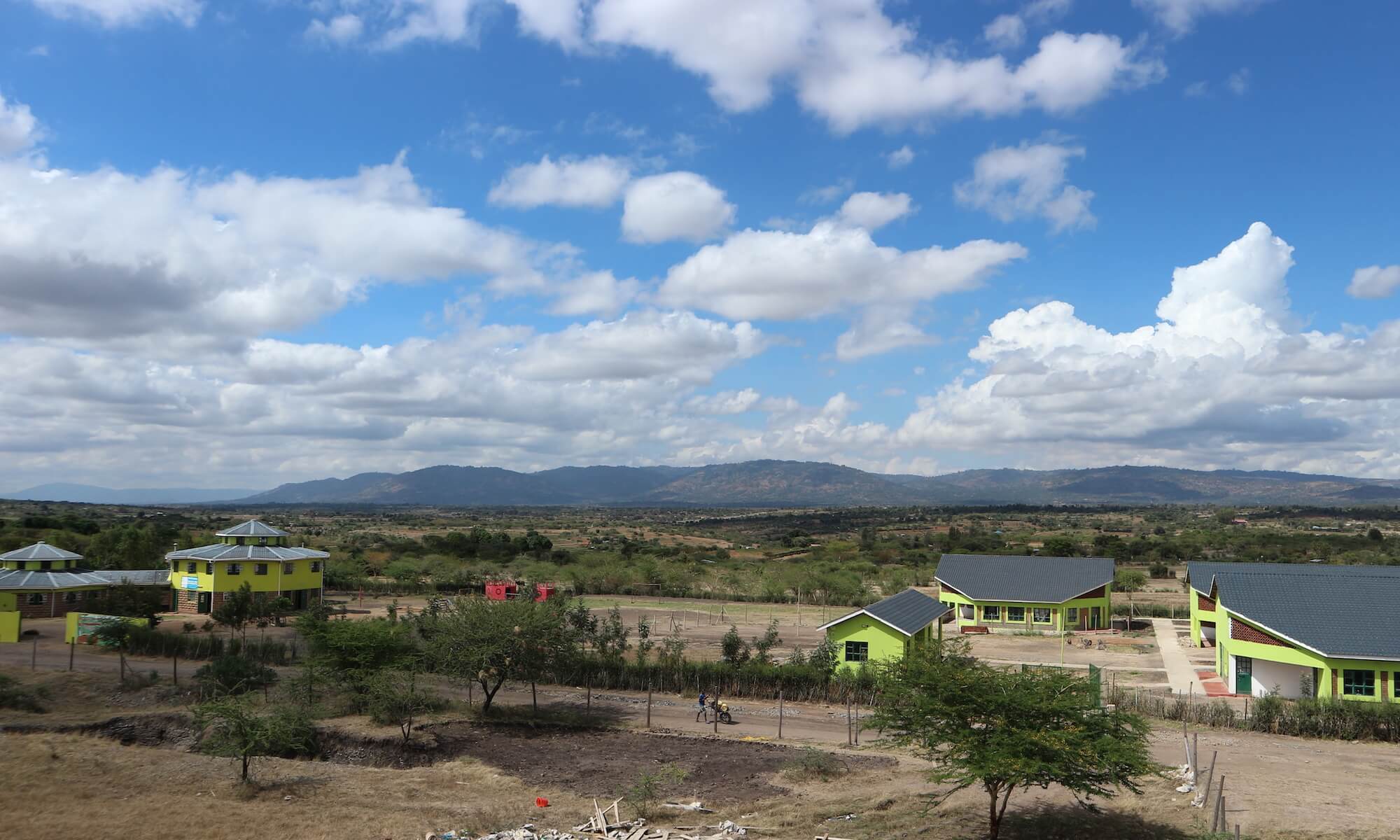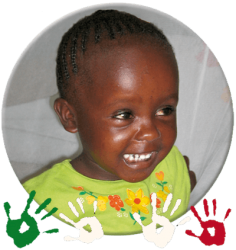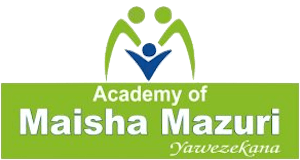Hi, I‘m Martyna, probably the first non German speaking volunteer in the program.
I‘m a 24 year old medicine student from Vilnius, Lithuania. Traveling the world and doing some humanitarian work was always a dream of mine, therefore, once I’ve learned about the Maisha Mazuri children center, I knew I wanted to come.
Sadly, because of my university exam schedule and presidential election in Kenya this August 2022, I could only stay here for 6 weeks.
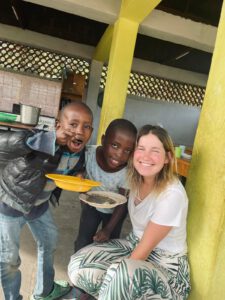
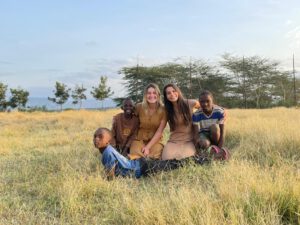
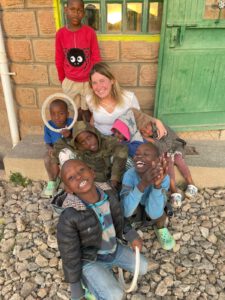
It’s hard to describe my feelings directly after arrival at MCC. Maybe a mix of excitement, curiosity, and fear? I was lucky because I got to meet another volunteer, who had been staying here already for 3 months. She showed me around, explained how life in MCC works, introduced me to the children and the staff and calmed me down. If she could do it for 3 months, so can I, right?
It’s difficult to portray and understand life in Kenya. The first thing I noticed was how slow time passes. It feels like people are living at x0,75 playback speed. Time is free here. Everyone has more than enough of it, and no one bothers to count it. This can be surprising for us Europeans, as time is the most expensive and precious thing we own. A taxi driver would offer a return trip to somewhere, wait for you the whole day in the car and only charge you for the ride. As he already made good money for that day. A waitress in a restaurant would come to get your order, remember that she had forgotten to bring you the menu, so she goes back. Once the menus where there, she would remember she had forgotten her notebook. Once the order is finally placed, 15 minutes later she would remember she had forgotten to ask whether you want your drinks cold or warm. There are similar situations in MCC, too. For example, it takes a while for simple ideas to materialize. Therefore, patience is an important thing to pack. Few days or weeks later you just adapt and learn to live the famous Hakuna matata (“no worries”) saying.
The second thing is trash. Trash everywhere. Plastic is being burnt on every free piece of land or streets. People just throw all the trash on the ground as they go, and it doesn’t seem to bother anyone. Being aware of the plastic package of a recently eaten candy in their palm is one of the things I try to teach kids at MCC. That is why me and Veronika (the other volunteer) bought new color-coded trash bins and placed them in the outdoor kitchen, indoor kitchen, and volunteer area. The green one for organic trash that is supposed to be later brought to compost and then to the farm. The blue one for plastic and not organic trash that is supposed to be burnt and a pink one for paper that we bring to our cook, that he can use to start fire in the kitchen. Slowly, but we are moving forward. Few days ago, coming back from church, I saw children picking up plastic bottles from the side of the road and bringing it back to our recycling bins. You can only imagine how happy that made me.
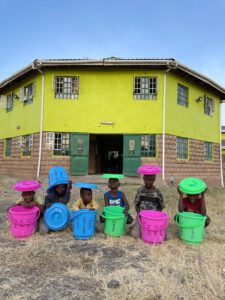
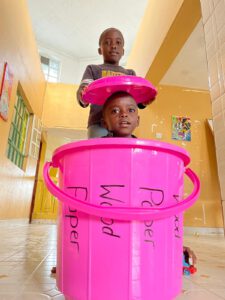
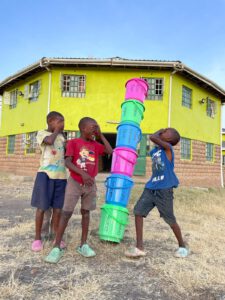
Another thing you notice is the poverty. So many people have so little that it’s hard to imagine. In the beginning I was surprised to see little boys and girls in MCC participating in daily chores: they cooked, cleaned, took care of domestic animals. They have strict time schedules even on weekends, almost no time to play. A feeling that these were not children, but tiny workers arose. However, later with social workers of this center, I have visited our children’s homes in the rural area and in slums of Nairobi. Seeing their backgrounds was a heartbreaking experience for me. Up to 10 people sleep in a one single bed and sharing a few square meters sized room with no windows. To my biggest surprise these people must pay rent for the tiny rooms, pay their electricity bills, buy water (not only for drinking, but also for washing and cleaning). I was thinking a lot about it, and I still have no answer on how they manage to survive. It also completely changed the way I perceive children’s lives in the center now. All of them have food every day, running water, have their own bed, a table, have a possibility to go to school, even toys to play with. This is so much more than their siblings and other children from a similar background have access to.
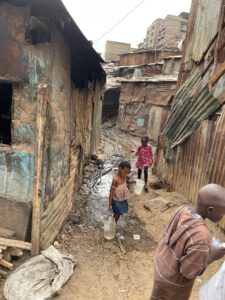
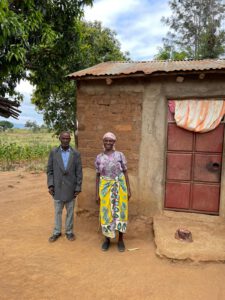
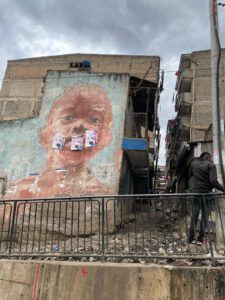
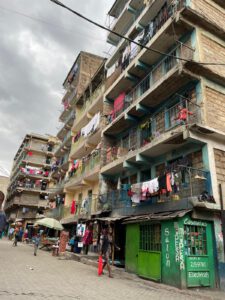
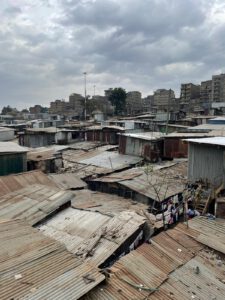
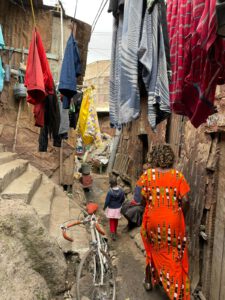
This is how our other projects of saving water and electricity were born. We try to teach children to reduce water consumption while washing the dishes after meals and doing laundry. As well as we introduced a new light competition. We check rooms at unannounced times and if we find a light on in an empty room, the room gets a minus point. Girls are competing against boys. At the end of the week the team with fewer minus points gets a prize and the competition starts again. Children absolutely adore it! And it really seems to work! Both teams have fewer and fewer minus points at the end of every week, hopefully they will catch a good habit after this. Also, hopefully next volunteers will follow up with this idea.
Education is life here. That’s why it’s my focus. These children joined the program at different ages. Some of them have missed out on a lot of school. Therefore, there are children in for example class 8 not able to read nor write. Some of them can’t speak English and spend every day in a school where most of the classes are taught in English. There is a huge inequality between them in terms of knowledge. I believe, mostly because they were left completely alone with their studies. From preprimary they were the only ones responsible for their own academic performance. How would you feel about doing homework? A child must be extremely motivated to come back home from the whole day of school and then do their homework alone. I feel like most of us in Europe would have ended up dropping out of middle school without constant support of our parents. My mother checked homework of my little brothers every day until they turned 14 and even reminded me to study through university.
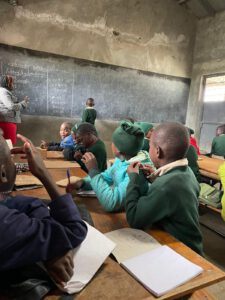
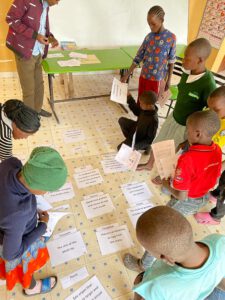
Once I arrived, the previous volunteer explained learning capacities of each child to me, so I would not have to waste time and give them the help they need. It is important, because the are children requiring extreme amounts of time with their homework, and if you start with them, there would be no time left for all the others. My biggest concern is the children somewhere in the middle with their learning capacities. I believe that they are the ones who – with a little bit of help and attention – could reach way higher results, and therefore proceed to high school. It’s really sad, but I’m alone and am physically not capable to help all of them every day…
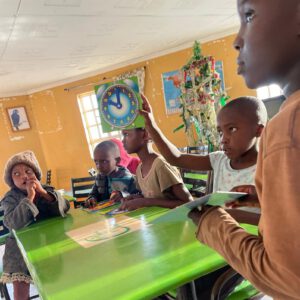
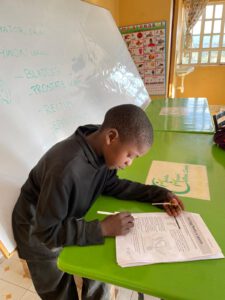
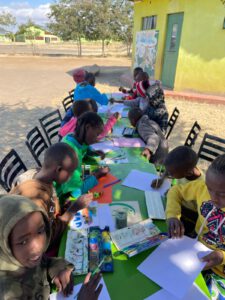
My biggest personal project during my stay here is sexual and reproductive health education. After talking about it with social workers, teachers, and director of the program, I found out that it is not allowed to teach children about sex in schools. Ironically teen pregnancies, STIs and single mothers struggling to feed up to 10 children are common. In addition, these children reach puberty, start menstruating and have wet dreams living without their parents or family. I believe knowing about these processes beforehand can significantly reduce anxiety and stigmatization once encountered. Learning about human anatomy and physiology of reproductive system helps them to better understand their own body, the one of their pairs of opposite sex and fully comprehend how contraceptive methods work. Analysis of a sexual intercourse not only familiarizes them with the process, but assists them in future decision making, family planning, STIs transmission and its prevention, and allows them to report abuse. I strongly believe that knowledge is power. What they decide to do with the provided information is now up to them. However, if accidents happened due to lack of knowledge, it would be our (all the adults living in the center) responsibility. I sincerely hope that this project stays alive once I’m gone. I will leave all the materials and explanations how to use them behind, therefore hopefully staff or future volunteers will devote a little bit of their time to this matter.
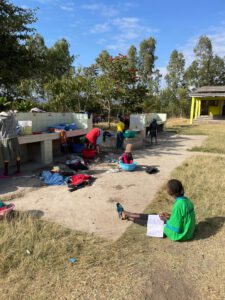
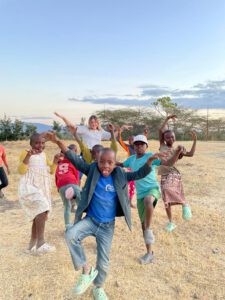
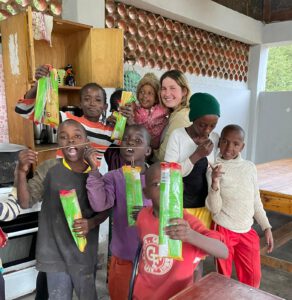
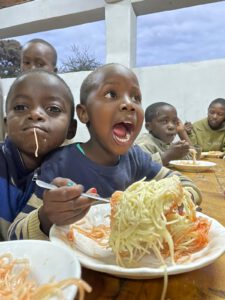
By the time of writing this report, my time here in MCC is almost finished. Now I know for sure that 6 weeks are not enough…
Funny thing is that everyone back home, once they learn that I am volunteering in Africa, tells me how proud and impressed they are of my selfless devotion to others. However, what they fail to understand, is that at the end it’s me, who gets the most benefit of it. I tried to teach these children one or few things and hopefully some of them will remember it for a while. Me on the other hand, I will remember them forever. Because they did really change my life.
Asante Sana
Martyna
